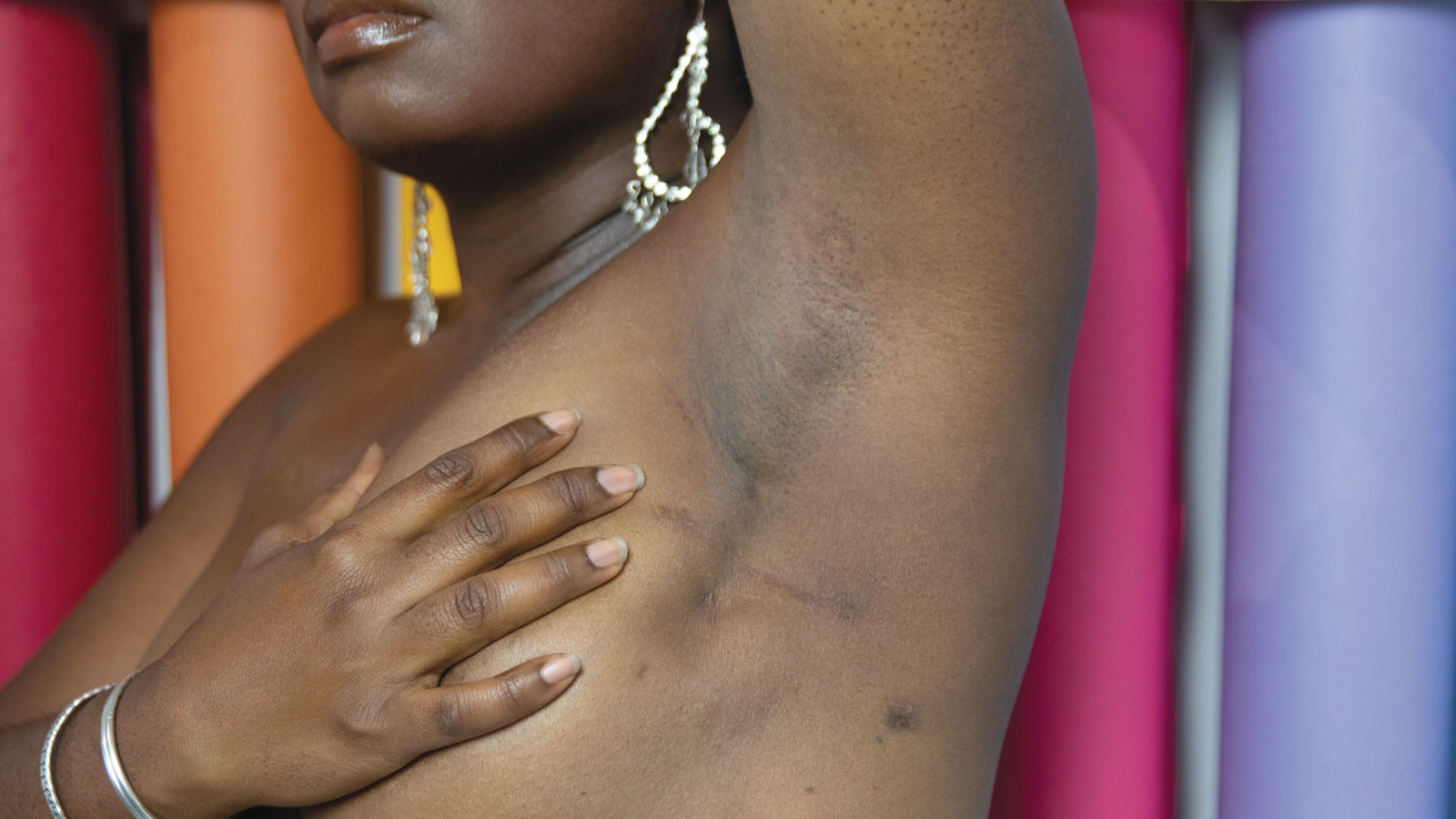Meet Laura, Uncovered
4 MINS to read

Name: Laura
Age When Diagnosed: 44
Breast Cancer Type: Stage 3, triple negative, invasive ductal carcinoma
I Am A: Survivor, Educator, Friend
Since my diagnosis in May 2018, I did six rounds of intravenous chemotherapy, which lasted 18 weeks, plus a few extra weeks due to delayed treatments because of low white blood counts. I had a very favourable response to the chemo and my tumours shrunk so significantly that the doctors could barely detect the once-hard-and-distinctive-ball-like lump in my left breast and the other mass in my armpit.
I had a few months to regain my strength before going in for surgery days before Christmas of that year. I was utterly deflated when my oncologist recommended another course of chemotherapy in February of 2019. This time, an oral dosage of chemo taken twice daily for another eight months. Finally, I began radiation in November 2019 and completed my final radiation session a week before Christmas in 2019. Then, another six months of what I call “post-treatment” treatment, which consisted of physio and rehab for range of motion in my arm, lymphedema education and treatment for this side effect I will have to manage for the rest of my life, and an endless amount of ongoing emotional self-care.
Before being diagnosed, I was always slightly self-conscious about my too small, or dare I say, flat breasts, which is such a loaded term having gone through this experience. I had a lumpectomy, which means I got to keep my breasts but so many women have to, or choose to – depending on their situation, have one or both completely removed. Post-diagnosis, I now have a whole new respect for my body and breasts. I’m here because my body got me through this and my breasts put up a good fight, dents, scars and all.
Breast cancer is an isolating diagnosis to begin with. It marginalizes you as you suddenly become a statistic. Add to that the layer of being a minority and not really fitting into the system of supports. You are a margin within the margin. You need to dig deep into the well of strength, that we as Black women have had to do for centuries and harness every ounce of attitude and sass that you have ever been accused of having and use it in your fight. You are stronger than you think.
The Eurocentric bias that is built into the healthcare and support systems is a disservice to the Black breast cancer community. The lack of research, information and communication regarding how certain medications affect Black patients uniquely is frustrating and disheartening. I am grateful for the Black nurses who could give me the inside scoop and prepare me for some of the very unexpected side effects such as extreme changes in skin pigmentation. What happens to all the Black women who do not by chance get those experienced Black nurses who can help you brace yourself and know what to expect? My experience with a program intended to build my self-esteem, left me feeling more marginalized and de-valued than when I went into the program because they did not have appropriate products for Black women. Did they not anticipate that a black woman would want to look and feel good, too?
I needed to be a part of this amazing resource because Black women need to see themselves represented in this challenging breast cancer journey, which is isolating enough, in and of itself. We don’t deserve to be in the margins of the margins. We deserve to be recognized, acknowledged and supported too. – Laura Moore